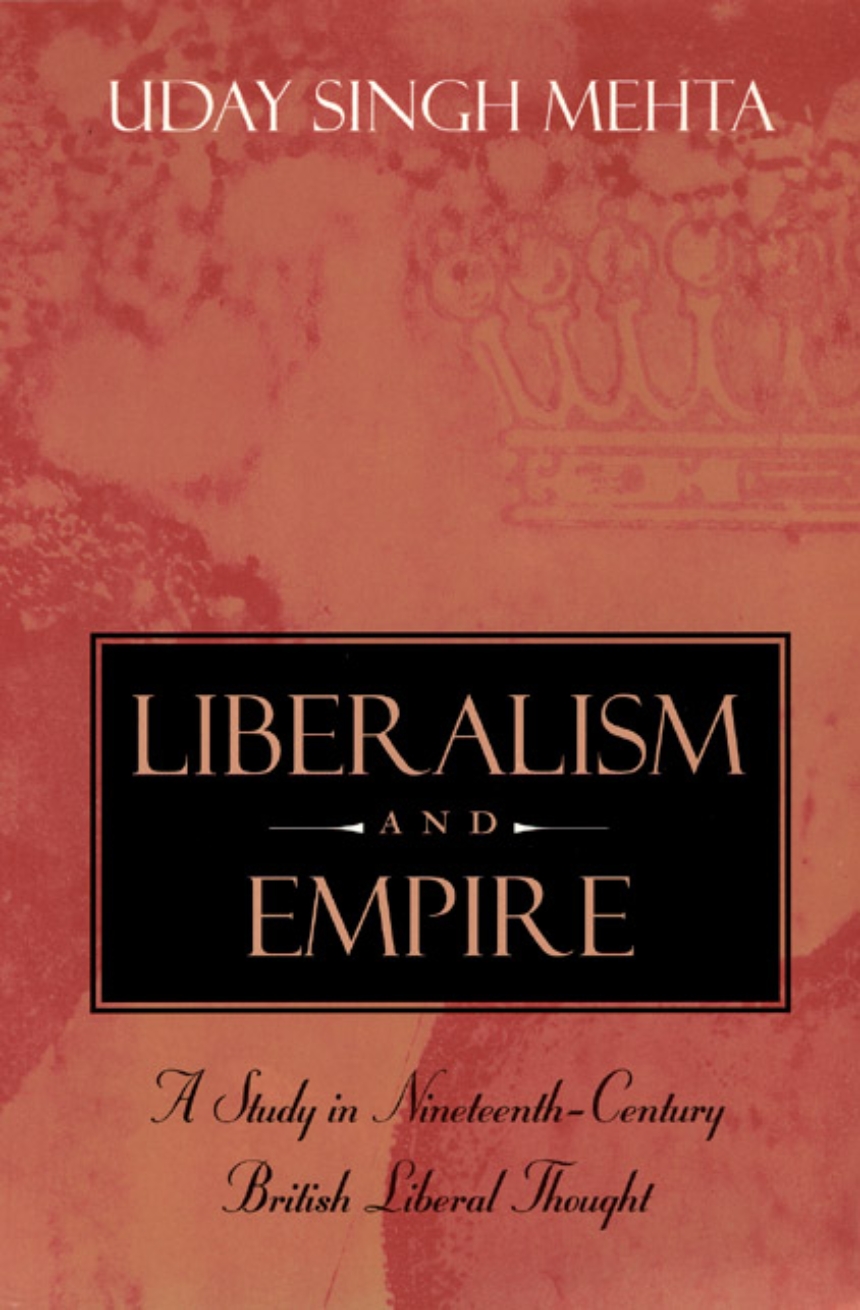Liberalism and Empire
A Study in Nineteenth-Century British Liberal Thought
9780226518824
9780226518817
9780226519180
Liberalism and Empire
A Study in Nineteenth-Century British Liberal Thought
We take liberalism to be a set of ideas committed to political rights and self-determination, yet it also served to justify an empire built on political domination. Uday Mehta argues that imperialism, far from contradicting liberal tenets, in fact stemmed from liberal assumptions about reason and historical progress. Confronted with unfamiliar cultures such as India, British liberals could only see them as backward or infantile. In this, liberals manifested a narrow conception of human experience and ways of being in the world.
Ironically, it is in the conservative Edmund Burke—a severe critic of Britain’s arrogant, paternalistic colonial expansion—that Mehta finds an alternative and more capacious liberal vision. Shedding light on a fundamental tension in liberal theory, Liberalism and Empire reaches beyond post-colonial studies to revise our conception of the grand liberal tradition and the conception of experience with which it is associated.
Ironically, it is in the conservative Edmund Burke—a severe critic of Britain’s arrogant, paternalistic colonial expansion—that Mehta finds an alternative and more capacious liberal vision. Shedding light on a fundamental tension in liberal theory, Liberalism and Empire reaches beyond post-colonial studies to revise our conception of the grand liberal tradition and the conception of experience with which it is associated.
245 pages | 6 x 9 | © 1999
Philosophy: Philosophy of Society
Political Science: Political and Social Theory
